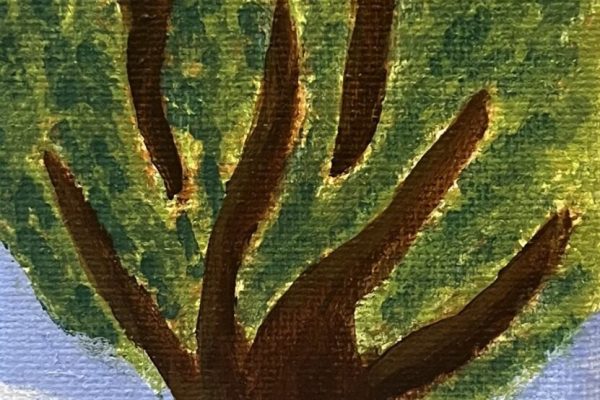Shabbat offers the perfect time to reflect about the larger issues in our lives and the lives of our neighbors. Through our campaign, Turn the Tables, Repair the World is working to build upon Shabbat’s ritual base to add an additional level of significance. Our Turn the Tables dinners – special meals hosted and attended by individuals across the country (hint: YOU!) – carve out time to raise complex issues that challenge our vision of a just society.
APPETIZER: OPENING ACTIVITY
BREAD FROM THE EARTH?
Items Needed:
● Copies (one per person) of Friday Night Blessings for Shabbat sheet
● Your Shabbat dinner menu
● Shabbat candles, matches, wine/grape juice, challah/bread, hand-washing station
Framing:
The complexities of food justice, working to foster stronger local food systems, self-reliant communities, and a healthier environment can be found in every bite we take. By pausing to reflect on the food before us with our BREAD FROM THE EARTH? activity, we recognize that we are inextricably connected to our food system, and so we should be responsible for making that system a just one. With this intention, we prepare ourselves for the dinner we will have tonight.
Host Instructions:
In advance of your dinner, prepare a basic menu of the food and drink that will be served. You don’t need to list out every ingredient, but a general description of the dish will be helpful. (For example: Mixed green goat cheese salad, three-cheese lasagna, apple pie, fresh fruit, red wine, apple juice.) If you are hosting a potluck dinner, please ask each guest to also bring a description of their dish.
At the beginning of the dinner, we encourage you to begin with the Shabbat rituals of lighting candles and making kiddush to set the tone for your Shabbat meal (you can download the Friday Night Blessings for Shabbat sheet below). Feel free to also bring in other Shabbat customs that you or your guests have. A friendly explanation of these rituals, as you understand them, is usually appreciated by at least a few people at the table.
Before saying Hamotzi, the blessing over the bread, we encourage you to pause and facilitate the following activity.
NOTE: There is some God language and Jewish ritual in the following activity and blessings. Invite your guests to interpret it in the way that both feels comfortable to them and encourages them to explore different perspectives. If the Shabbat rituals aren’t your thing, feel free to do the activity by itself.
Share with guests:
The blessing over bread thanks God for bringing forth bread from the earth for us to enjoy and for sustaining us with this meal. The phrase “brings forth bread from the earth” implies a process. Logically, bread does not spring up from the earth in its final form, and this blessing assumes a world where reciters are intimate with the processes by which their bread was created. More specifically, reciting Hamotzi takes for granted that we know and can appreciate each step, from seed to table, that it took for our bread to arrive at this table.
We must then ask the question: are we intimate enough with our food system today to still know where our food comes from?
Have your guests divide up into groups of two or three, ask each person to pick one dish from tonight’s menu (pass around copies to each group) and see if they can trace back the origin story of each ingredient in that dish as far as they can. Where was it produced? How many people helped create it? Was it processed? Where was it purchased? How much did it cost?
Have the group come back together, and if the group is a reasonable size, have each person pick one ingredient from the dishes on the table. Each person should then introduce themselves by sharing their name, what brought them to this dinner, the ingredient they’ve selected, where they think it originated, and the path that brought the ingredient to this evening’s meal.
After everyone has shared, ask for a few reflections on what justice issues they know of that are linked to the food on our table. After a few have been shared, wrap up by reminding the group that this exercise is an opening to a conversation that they should feel free to continue informally over dinner. Now that we’ve grounded ourselves in the ways in which every bit of food we encounter connects us to the larger food system, our hope is that they will delve into learning more about that system so we can become better equipped to bring about more just change.
Conclude by inviting people to ritually hand-wash and say Hamotzi all together.
Turn the Tables is a program created by Repair the World.
Repair the World works to inspire American Jews and their communities to give their time and effort to the causes they are passionate about. We aim to make service a defining part of American Jewish life.











